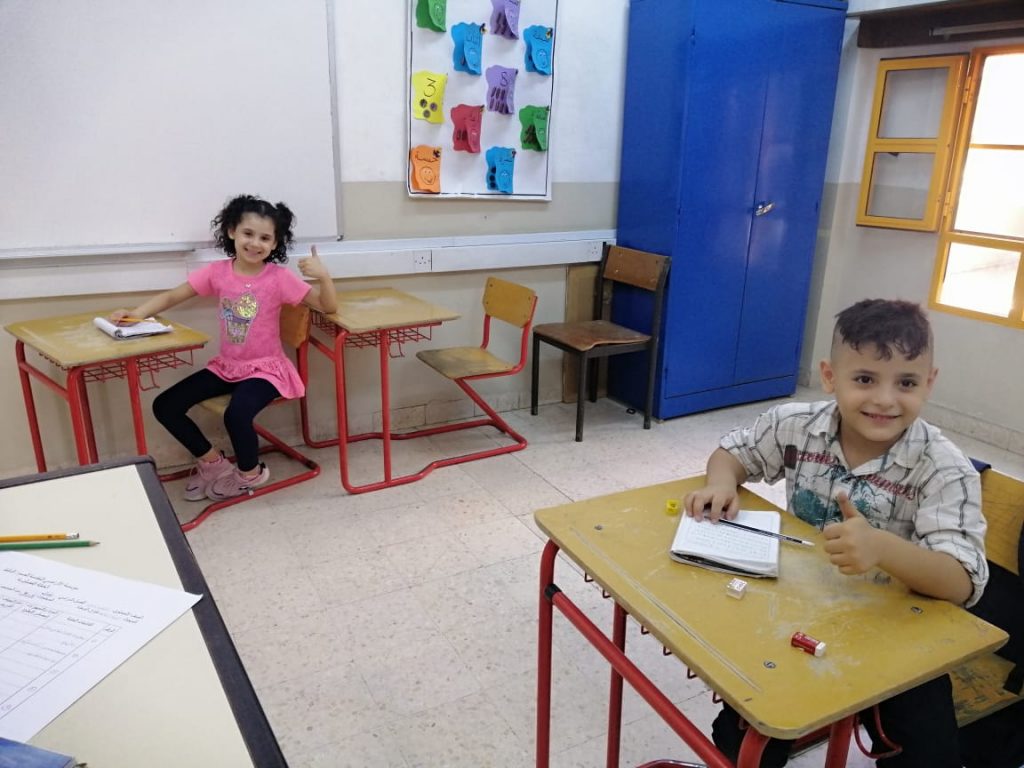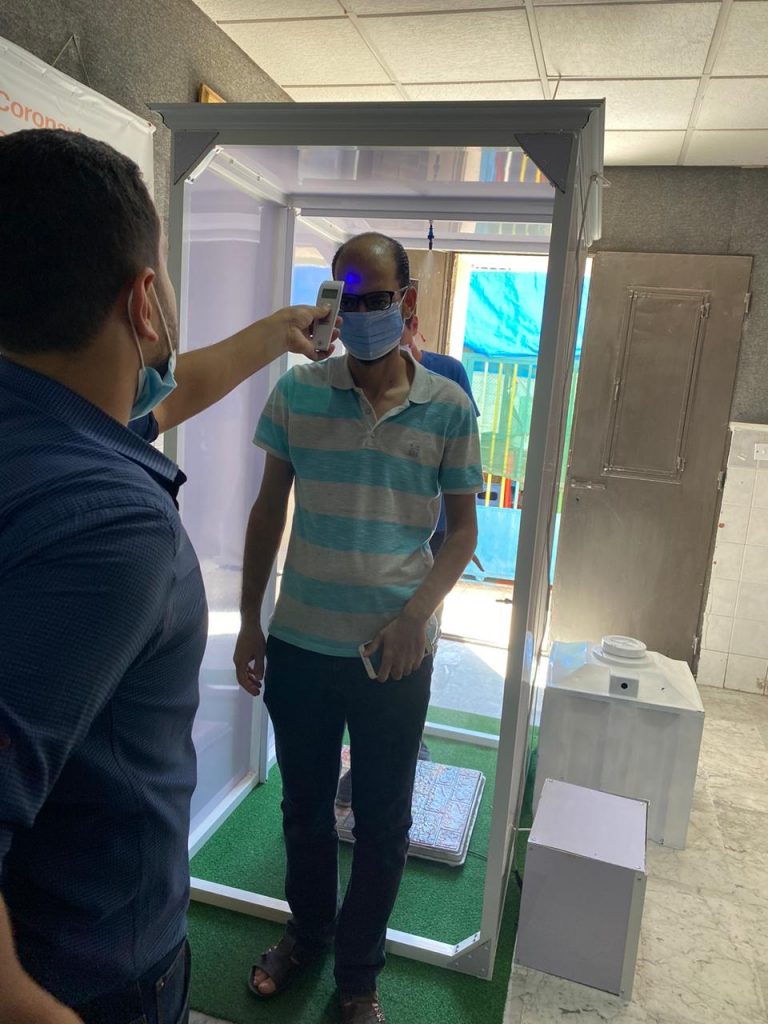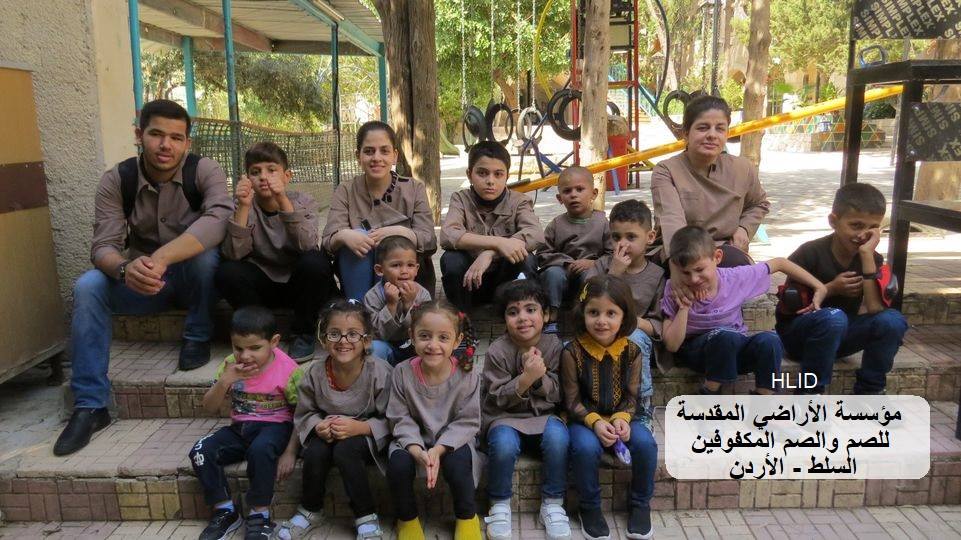School leaders adapt in creative ways
September 11, 2020- Posted in Education, Vocational Education
Supporting the schools of the Episcopal Diocese of Jerusalem is at the heart of AFEDJ’s mission.

Whether it’s the progressive, academic schools where the Christian values imparted help to form the leaders of the next generation, the vocational schools that prepare non-traditional learners and vulnerable young refugees for a stable, prosperous future, or the schools that offer children with disabilities the opportunities to reach their full potential, all are inspiring places that transform the lives of their students.
During this time of coronavirus, schools in the region – like every school across the globe – are making adjustments to welcome their students back to safe and supportive learning environments.
We checked in with several diocesan schools and here’s what we learned about “Back-to-School 2020.”
Christ Episcopal School
Nazareth, Israel
When the Israeli government announced that in-school classes could begin on September 1, the leaders of Christ School developed a plan to allow young students to attend full-time and older students to blend in-school and online learning.
“We are working to equip all upper school classrooms with cameras and sound systems so students at home can participate in real time,” explained Christ School Headmaster, Archdeacon Samuel Barhoum. “All safety measures are in place – temperature checks, masks, and social-distancing.”
But, during the first week of school, a teacher was diagnosed with COVID-19. She and all of her 350 students have been required to quarantine until September 15.
Barhoum predicts that with the current surge of infections in Israel and the imminent partial or full shutdown, the school will be forced to move instruction for all 1,200 students entirely online.
Here’s a short and sweet video of the first day at Christ Episcopal School.
Saviour’s Episcopal School
Zarqa, Jordan
Dua’a Bisharat, principal of Saviour’s Episcopal School in Zarqa, Jordan, reported that many families are suffering because of the economic downturn in Jordan caused by the pandemic.

“Government salaries have been reduced by as much as 50 percent, and many parents have lost their jobs which makes them unable to pay their children’s school tuition.”
While the Jordanian government has approved a return to in-school instruction for five days each week beginning in September, Saviour’s teachers have trained to conduct online classes in case a quarantine is put in place.
“We fixed a sterilizing spray machine at the entrance, and we spray desks twice a day,” said Bisharat. “We have expanded the number of playgrounds to six in order to accommodate social-distancing for our students and keep them safe.”
Episcopal Technological and Vocational Training Center
Ramallah, West Bank
“Vocational education is hands-on education, both in culinary arts and information technology,” said ETVTC Director Giovanni Anbar, “so students need to be in the kitchen and in the lab to learn.”

To make up for ground lost in their junior-year spring, Anbar obtained permission from the Palestinian Authority Ministry of Education to allow seniors in both streams to begin school in early August. The incoming class of juniors began classes during the last week of August. Students will alternate days for in-school learning and virtual classes to allow for accommodations required by the government.
“We had so many interested students this year we could have opened two additional sections in the junior class, but safety concerns and the need to ensure social-distancing forced us to turn students away,” Anbar said.
In early September, in addition to its high school program, ETVTC began classes for a dozen adult culinary arts students. This year marks the sixth consecutive year for this popular ten-month course.
Holy Land Institute for the Deaf
Salt, Jordan
The Holy Land Institute for the Deaf, located in Salt, Jordan, welcomed back its boarding students ages four to 25 on September 1.

For the teachers and staff, it’s been a busy summer with programs for Syrian children with disabilities who live in Jordan’s Al-Azraq and Za’atari refugee camps. In addition to enrichment programs for children, HLID staff conducted hearing screenings and health awareness classes.
On campus a new class of adult family members just graduated from beginning and intermediate sign language classes designed to help them communicate better with their deaf and hearing-impaired children.
The school’s community-based culinary arts program, located in the diocesan-owned former English hospital in downtown Salt, welcomed students to its third class.
